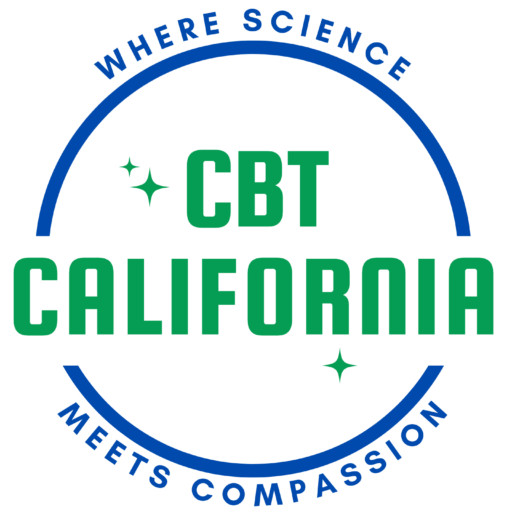Cognitive Behavior Therapy
Cognitive Therapy (or Cognitive Behavior Therapy [CBT]) was originally developed by Aaron T. Beck, M.D., a recent recipient of the prestigious Lasker Award in Medicine. First developed for depression, the general principal underlying treatment is that thoughts, feelings, and behaviors influence each other and the ways individuals interact in their environment. By changing our thoughts or our relationship to our thoughts, we can change behavior and emotions. In addition, CBT helps individuals identify and learn tools to overcome maladaptive thought patterns, behaviors, and difficult emotional experiences.
Using this general frame, and with more scientific research than any other psychotherapy, CBT has evolved to treat various disorders and presenting problems in specific and efficient ways. At CBTC, clinicians focus on ensuring treatment is targeted for the patient’s areas of concern, demonstrating compassion for individual struggles, and holding themselves accountable for delivery and implementation of these effective treatments. CBT California offers services for family members, too.
CBT Calfornia Offers Services For Family Members
When people experience emotional difficulties, it affects not only them, but also their loved ones. The DBT program at CBT California offers services for friends and family members of patients who are struggling with psychological difficulties. In addition, CBT California offers services such as parent skills training and family consultation sessions to help parents and family members gain support and obtain skills for more effective interactions with their loved one. For more information about family services please visit here for more information.
CBT Treatment Map
Assessment
Upon your intake, your clinician at CBTC will do a comprehensive assessment of your current problems and goals. Our team uses validated psychological assessments to help accelerate the intake process so that you do not spend an excessive amount of time in session recounting information that can easily be read.
Choosing A Treatment
One of the benefits of choosing CBTC is that our team is well trained in a number of evidence based treatments and will present you with the treatment options most likely to benefit you given your symptoms, problems and goals. CBT California offers services and treatments including Cognitive Behavior Therapy (CBT), Dialectical Behavior Therapy (DBT), Acceptance and Commitment Therapy (ACT) and Cognitive Behavioral Analysis System of Psychotherapy (CBASP), and/or trauma focused treatment such as Prolonged Exposure (PE) or Cognitive Processing Therapy (CPT).
Cognitive Behavior Therapy (CBT)
CBT is the most well researched mode of psychotherapy. With over 1000 studies on over 10,000 patients, CBT has been shown to be effective with a wide range of disorders including mood disorders, anxiety disorders, eating disorders, post-traumatic stress, as well as many others. CBTC staff are all intensively trained in CBT by top experts in the field. CBTC staff ensures caring, high fidelity treatment for the best possible outcomes.
Prolonged exposure therapy (PE)
Prolonged exposure therapy (PE) is a form of cognitive behavior therapy designed to treat post-traumatic stress disorder, characterized by re-experiencing the traumatic event through remembering it and engaging with, rather than avoiding, reminders of the trauma (triggers). Prolonged exposure therapy (PE) is a theoretically-based and highly efficacious treatment for chronic post-traumatic stress disorder (PTSD) and related depression, anxiety, and anger. Based on basic behavioral principles, it is empirically validated, with more than 20 years of research supporting its use. Prolonged exposure is a flexible therapy that can be modified to fit the needs of individual clients. It is specifically designed to help clients psychologically process traumatic events and reduce trauma-induced psychological disturbances. Prolonged exposure produces clinically significant improvement in about 80% of patients with chronic PTSD. The PE therapy was found to be superior to supportive therapy in sexually abused women with PTSD in a randomized controlled trial (Foa, 2014).
Cognitive Processing Therapy (CPT)
Mindfulness-Based Cognitive Therapy (MBCT)
Dialectical Behavioral Therapy (DBT)
Dialectical Behavior Therapy is the treatment of choice for Borderline Personality Disorder (BPD) and a host of other concerns related to emotion regulation problems. Please visit our extensive information here about the DBT program at CBTC.
DBT ACES (Acceptance the Challenges of Exiting the System)
DBT SUD (Substance Use Disorders)
DBT PE (Prolonged Exposure)
Acceptance and Commitment Therapy (ACT)
Acceptance and Commitment Therapy (ACT) has over 100 studies showing its effectiveness, and was recently approved by the Veteran’s Affairs System as an effective treatment for patients with multiple problems. ACT is great alternative for those who have tried other treatments without success. ACT is a highly humane treatment based on the premise that we all encounter suffering and our attempts to rigidly control our own emotions and experiences increases the suffering. This treatment is focused on mindfulness, acceptance and increasing lives full of meaning and value.
Cognitive Behavioral Analysis System of Psychotherapy (CBASP)
You probably don’t know this, but the biggest scientific study ever done on psychotherapy was done on Cognitive Behavioral Analysis System of Psychotherapy (CBASP). This is the only treatment designed specifically for people with chronic depression. This treatment focuses on helping you get what you want out of your life and interactions with others. Its effectiveness is unmatched by any other psychotherapy for people who have been depressed two years or more. CBTC staff have been intensively trained in this approach and can help you move towards a more satisfying life with better relationships.
